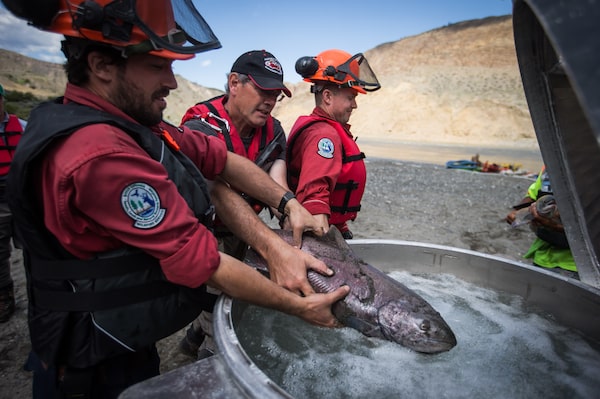
Michael Crowe, centre, of Fisheries and Oceans Canada, and two members of the B.C. Wildfire Service place a salmon in a vessel being used to transport them up the Fraser River with a helicopter, past a massive rock slide near Big Bar, west of Clinton, B.C., on July 24, 2019.DARRYL DYCK/The Canadian Press
Officials are uncertain whether limited success in getting some salmon species past a rock slide in British Columbia’s Fraser River will work with smaller fish expected to arrive in the coming days.
Michael Crowe, with the Department Fisheries and Oceans, says an estimated 1.5 million pink salmon will pass through the remote area but they’re weaker swimmers than chinook and sockeye, and coho and steelhead will show up soon afterward.
He says engineering work to blast rock obstructing the passage of five species of salmon is challenging.
Crews have managed to transport nearly 60,000 salmon by helicopter since the slide was discovered in June.
Mr. Crowe says plans are under way to get what’s known as a spider excavator to the base of the slide so it can use wheels or legs to go around difficult terrain and allow for rocks to be blasted and removed.
He says federal, provincial and First Nations officials are working to deal with challenges in the area where a new road has been built to transport fish at night when helicopters can’t fly.
Our Morning Update and Evening Update newsletters are written by Globe editors, giving you a concise summary of the day’s most important headlines. Sign up today.